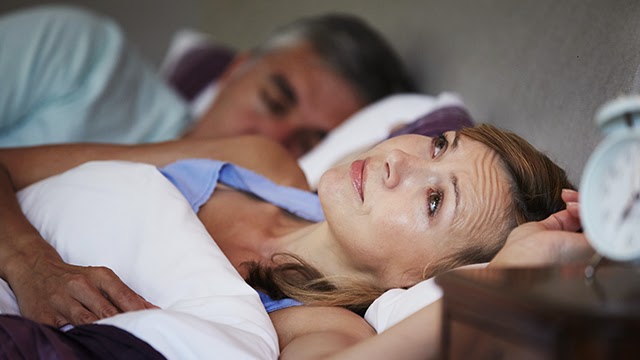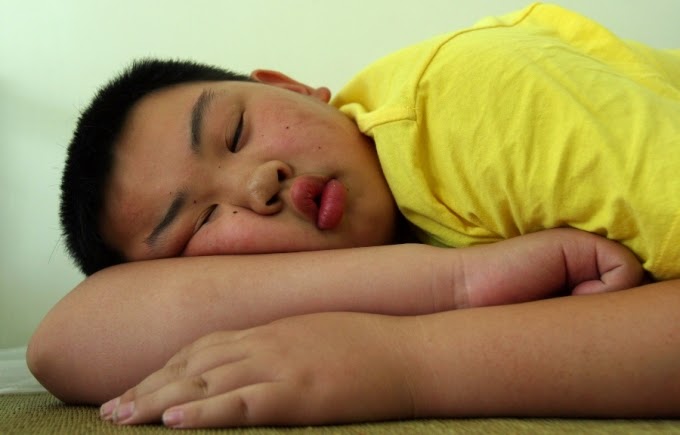If You Have Sleep Apnea, Your Memory May Decline Earlier in Life.
Study links sleep breathing problems, cognitive loss May 18, 2015 / By Brain & Spine Team Sleep apnea — a sleep disorder in which breathing is briefly and repeatedly interrupted during sleep — may be doing more than affecting the quality of your sleep and making you tired. A recent study finds a link between abnormal breathing patterns during sleep – like heavy snoring and apnea – and cognitive decline at an earlier age than normal. Researchers from New York University studied data from nearly 2,500 people between the ages of 55 and 90 who had Alzheimer’s disease. They found those with breathing …
Struggling to remember something? Have a good sleep, as researchers find it boosts memory
Scientists show for first time that sleep makes it easier to retrieve nuggets of information that may have got lost in a corner of the brain By Agency / 12:01AM BST 27 Jul 2015 If you are trying to remember something vital you have forgotten, get a good night’s sleep. It is well known that sleep boosts memory, but scientists have shown for the first time it also makes it easier to retrieve nuggets of information that may have got lost in a corner of our brain. In two situations where subjects forgot information over the course of 12 …
Heavy snoring and apnoea linked to earlier mental decline.
20 APRIL 2015 Treating sleep issues may delay mental decline in adults, researchers say. Heavy snorers and people with sleep apnoea may be more likely to develop memory and thinking problems at younger ages than their well-rested peers, a new study suggests. Treatment with CPAP may delay mental decline The good news from the study is that treating sleep apnoea with a continuous positive airway pressure (CPAP) machine may delay mental decline. “Treatment may not cure the disease, but may delay the onset of memory problems,” said lead researcher Dr. Ricardo Osorio, a research assistant professor of psychiatry at New York …
Your Brain May Get Smaller if You Don’t Sleep Enough
Notes from Dr. Norman Blumenstock EmpowerHER reports that a portion of the brain may shrink when individuals do not get an adequate amount of sleep. The cerebral cortex is the site of complex functions of the brain, and controls how we think and interact with the world. According to the study, lack of sleep may shrink part of the frontal cortex, which deals with problem-solving, self-control, planning and logic. Lack of sleep also accelerates the rate of brain loss in regions that process sound, language and spatial orientation. Monkey Business Images/PhotoSpin Getting a good night’s sleep has all sorts of health benefits, …
Sleep sensors: waking up to the need to study our night’s rest
Notes from Dr. Norman Blumenstock Many people are turning to fitness trackers to help boost the health benefits of better sleep Every night Jack Hammond straps a small gadget to his wrist. The sensor claims to track his sleep, monitoring every toss and turn so that when he wakes it can tell him how long he slept, how much of it was deep sleep – and how often he was woken up by his unsociable neighbor. “I can see that I need about four hours’ deep sleep to feel refreshed, and I need to be asleep for about eight hours for …
Notes from Dr. Norman Blumenstock Excessive snoring might seem like a relatively harmless issue, but more evidence shows that sleep apnea can cause serious health issues to your brain. Kathleen Lees k.lees@scienceworldreport.com First Posted: Sep 10, 2014 06:16 PM EDT More than 18 million Americans are estimated to have sleep apnea, a breathing disorder that disrupts air flow and can result in a poor night’s rest. (Photo : Reuters) Excessive snoring might seem like a relatively harmless issue, but more evidence shows that sleep apnea can cause serious health issues to your brain. Recent findings published in the journal PLOS ONE show that blood flow …
Can Sleep Loss Affect Your Brain Size?
Published on September 4, 2014 Sleep difficulties may be linked to faster rates of decline in brain volume, according to a study published in the September 3, 2014, online issue of Neurology, the medical journal of the American Academy of Neurology. Sleep has been proposed to be “the brain’s housekeeper,” serving to repair and restore the brain. The study included 147 adults between 20 and 84 years old. Researchers examined the link between sleep difficulties, such as having trouble falling asleep or staying asleep at night, and brain volume. All participants underwent two MRI brain scans, an average of 3.5 …
Sleep study shows dangers of driving drowsy
Notes from Dr. Norman Blumenstock In a sleep deprivation study, a hand full of participants stayed up for 24 hours straight and was then monitored in a sleep study room. Dr Chris Hammond from the Ogden Clinic monitored their brain waves to show how sleep deprivation affects how people function. http://www.good4utah.com/story/d/story/sleep-study-shows-dangers-of-driving-drowsy/20327/E9GIgqGZaU-4_GLJJUPhoA OGDEN, UTAH (GOOD 4 UTAH) – The Utah Department of Transportation, the Utah Highway Patrol and the Department of Public Safety wants the public to know the dangers of driving drowsy. They say it’s one of the top five behaviors killing people on Utah roads. It’s all part of …
How a Lack of Sleep Can Hurt Your Finances
Notes from Dr. Norman Blumenstock “The fact is that man-made disasters ranging from the explosion of the Space Shuttle Challenger to the spilling of Exxon Valdez, and the chemical disaster in Bhopal, India, all have sleepiness as a primary contributing factor,” Wickwire says. Proud that you’re awake at all hours and still functioning normally? It may be costing you. The arguments for a good night’s sleep are well-documented, with studies showing that people who get more sleep get fewer colds, tend to maintain a healthier weight and have a smaller chance of coming down with heart disease and diabetes. But …
In Large Study, Sleep Quality and Duration Improve Cognition in Aging Populations
Notes from Dr. Norman BlumenstockBetter sleep has a positive connection to better memory. Published on June 17, 2014 A new University of Oregon-led study of middle-aged or older people who get 6 to 9 hours of sleep a night shows that they think better than those sleeping fewer or more hours. The study, published in the June issue of the Journal of Clinical Sleep Medicine, reaffirms numerous small-scale studies in the United States, Western Europe, and Japan, but it does so using data compiled across six middle-income nations and involving more than 30,000 subjects for a long-term project that began …








